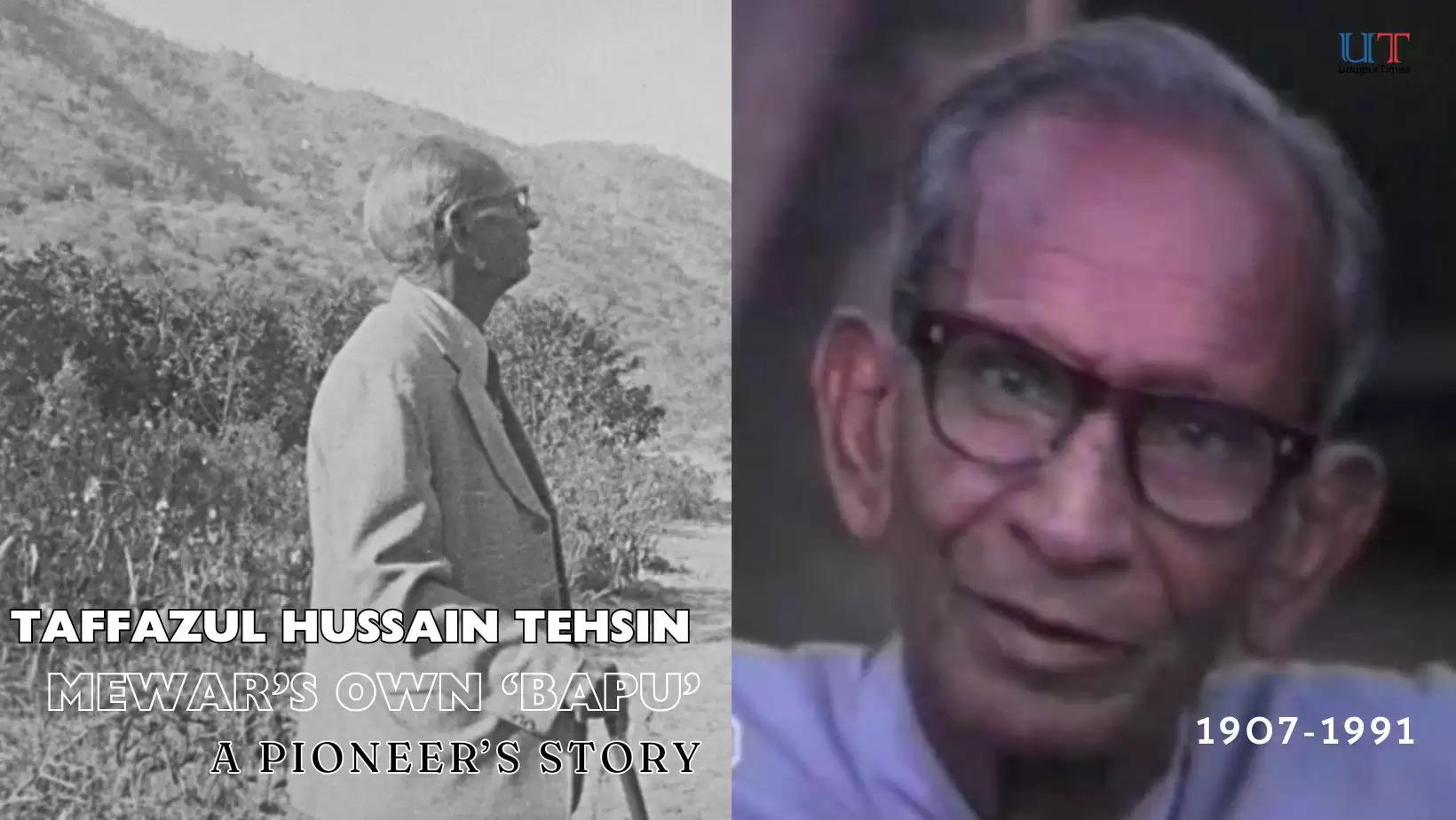Mewar's Own 'Bapu' - a Pioneer's Story
In the early 20th century, as the Indian subcontinent simmered with nationalist fervour and a yearning for social reform, a profoundly influential figure emerged in Udaipur, Mewar - Taffazul Hussain Tehsin. Born in 1907 in the starkly beautiful "City of Lakes" of a desert state, Taffazul inherited a progressive, scientific, and rational mindset from his father. Known affectionately as "Bapu”, his remarkable journey—from leading a business empire in arms and ammunition to pioneering efforts in mining and wildlife conservation - highlights a legacy of innovation, social change and community service.
Legacy of Innovation & Social Change
Taffazul's father, Allahbakhsh Kadar Khanji Tehsin (his PHOTO of shikar published in a Gujarati newspaper), was a courageous and enterprising businessman known for supplying cannons and arms to the royal household. Braving deep forests and notorious dacoits, he would transport coins in gunnysacks on donkey backs all the way from Udaipur to Bombay. Most of the cannons that we see in City Palace at Udaipur today, have been brought by Allahbakhsh.
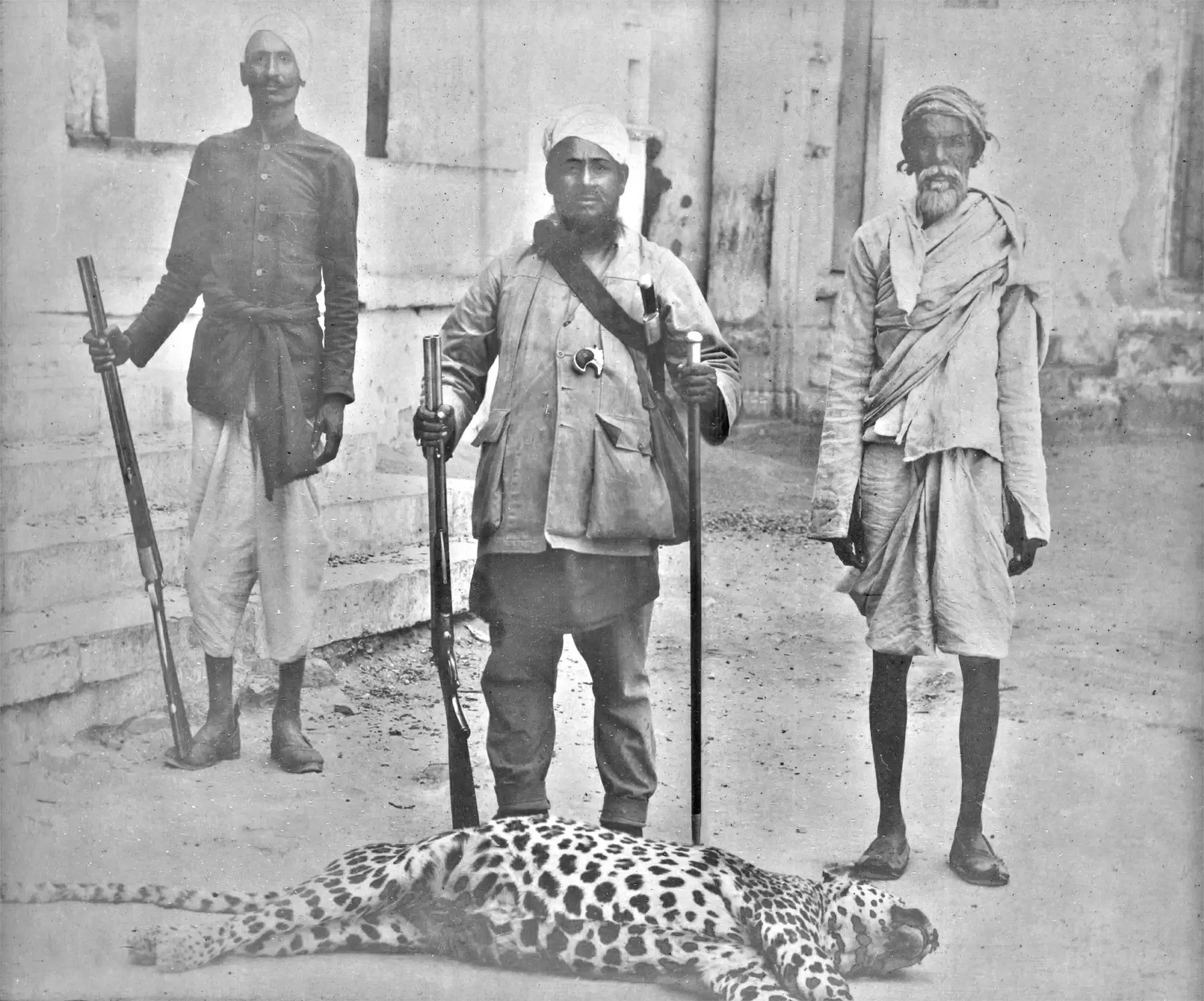
When the railway line was being laid in Udaipur for the first time in 1925, Allahbakhsh constructed around 80km of the railway line near Thamla village, in a thickly forested track.
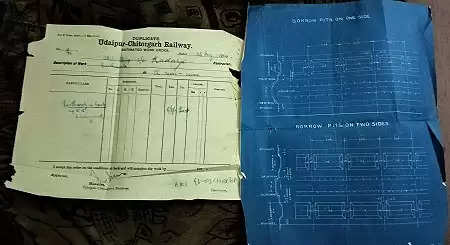
Allahbakhsh was also a celebrated shayar, and was bestowed the takhallus (pen name) “Tehsin" by a peer saint. In the 1980s, a woman from Taunk came looking for his works to Udaipur. But his manuscript had been disposed of to a paper recycler 40 years back by Taffazul’s elder brother. Allahbakhsh’s scientific curiosity led him to introduce several innovations to Udaipur. He was the first to bring a Gramophone and a Telephone — operated by Leclanché cells¹ — both of which were later acquired by the Durbar (Royal Court). Additionally, he introduced to Udaipur, the cricket gear, a doorbell that rang as someone stepped on the first step and the first bicycle from Bombay, a marvel at the time, as a vehicle that ran without bullocks or horses.
In the early 1920s, Allahbakhsh sought permission from Maharana Fateh Singh ji to install a mechanised wheat grinder (Atta Chakki), but his request was denied. However, Bhupal Singh ji, who was then the crown prince, promised to grant him permission. True to his word, in later years, Bhupal Singh ji let Allahbakhsh establish the first such industry of Mewar on a one-acre plot in Mahawatwadi. This pioneering setup, which included machinery imported from London, was powered by a boiler and steam engine due to the absence of electricity and conventional fuel.
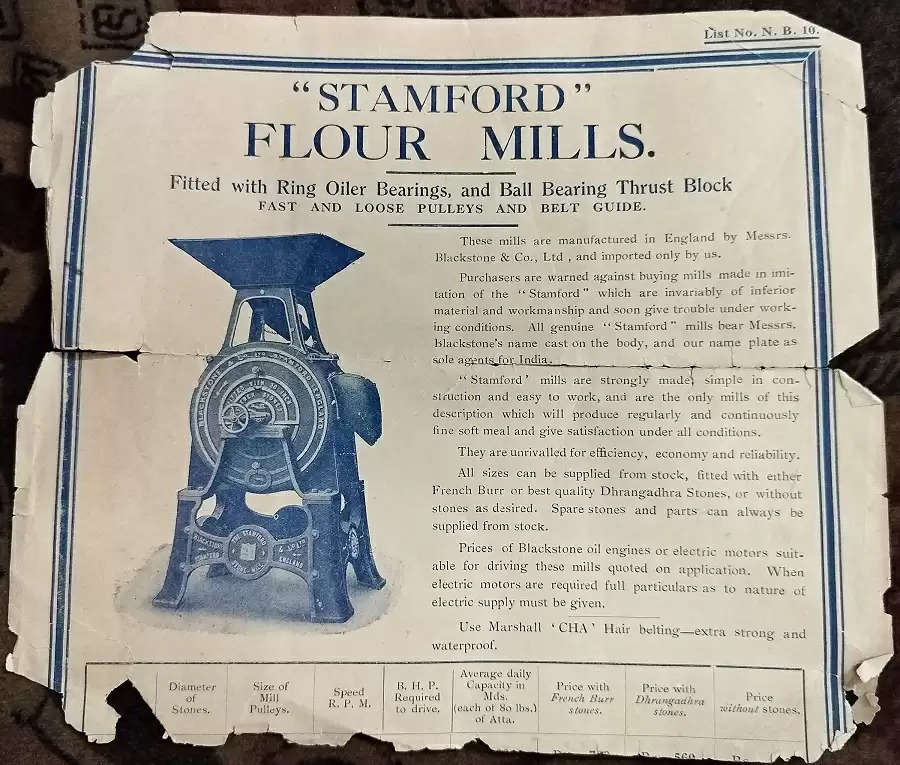
of the Flour Mill installed by AK Tehsin in Udaipur
The Rise of Taffazzul
Before Allahbakhsh Tehsin's death in 1929, Bhupal Singh ji inquired about his final wish. He promised to send Allahbakhsh’s younger son, Taffazul, to London to study Engineering. However, Taffazul, who was completing his intermediate education at the time, declined the offer to manage his family responsibilities. Instead, he requested the Maharana's permission to start a business in arms and ammunition. A man of understanding, Maharana Bhupal Singh ji granted Taffazul the exclusive rights to deal in foreign guns, ammunition, gunpowder and sulphur throughout Mewar.
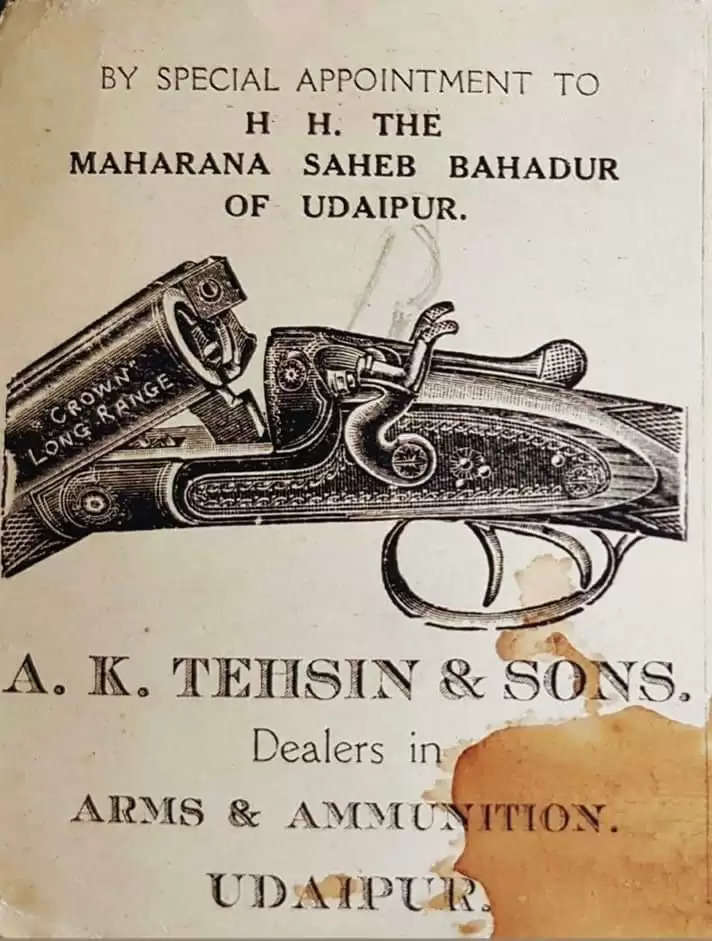
Taffazul's showroom was among the first in Mewar and displayed foreign-made guns in glass cases. He imported these weapons and ammunition from Bombay and Karachi. People traveled from near and far to see the showroom. Holding a monopoly, Taffazul had to establish agencies in every small village, town, and city within the kingdom, especially to make sulphur and gunpowder available to villagers and local hunters who owned muzzle loader guns. He purchased a Willy’s-Overland Whippet car, known for its considerable clearance. This robust vehicle could traverse the farthest villages, crossing hills, valleys and rivers. Shown below is the generic photo a Willy's Overland Whippet car image for readers...
Journeys through Mewar - a Business Empire
Taffazul embarked on his expeditions across the Mewar hinterland in his Overland-Whippet, equipped with a cook, groceries, a stove and cans of kerosene—since diesel was scarce. Driven by an unyielding love for the forests, compassion for the tribal communities, and a passion for hunting and adventure, he journeyed through Southern Rajasthan. During these travels, he successfully established 98 franchise shops under the banner of A. K. Tehsin and Sons.
In those days, cars were rare and primarily owned by the Maharana. When a car drove through the streets, men and women would bow down to pay their respects. Given the reverence associated with automobiles, the Durbar asked Taffazul to remove the distinct horn (bhonpu) from his car to avoid confusion with the Maharana's vehicles. In subsequent years, Taffazul bought various Ford models, such as the T-Model and B-Model. Notably, he purchased the T-Model from G. C. Trench, the Settlement Commissioner of the then Mewar State. The area opposite the Bhartiya Lok Kala Mandal still bears the name Trench Colony, a testament to his legacy. In the mid-1970s, an encounter further connected the past with the present when an English woman, claiming to be G.C. Trench's granddaughter, visited the Tehsin household. She recounted that her grandfather had once instructed her to visit his former bungalow and see the T-Model he sold to T.H. Tehsin if she ever came to India.
Topi wala Bapu
Taffazul enjoyed fraternal relations with zamindars like Rajrana Kuber Singh ji of Jhadol and Thakur Shiv Singh ji of Parsad as well as the tribals, who serenaded Taffazul with folk songs written for him like "topa wala Bapu aaya," a nickname that soon became well-known. His strong ethical principles in business and renowned skill as one of Mewar's finest marksmen earned him both respect and occasional resentment. True to his values, he declined a jagir (land grant) near Bhindar that his ancestors had received, to resist the begaar (free labor) demanded by the Durbar from all jagirdaars (landlords).
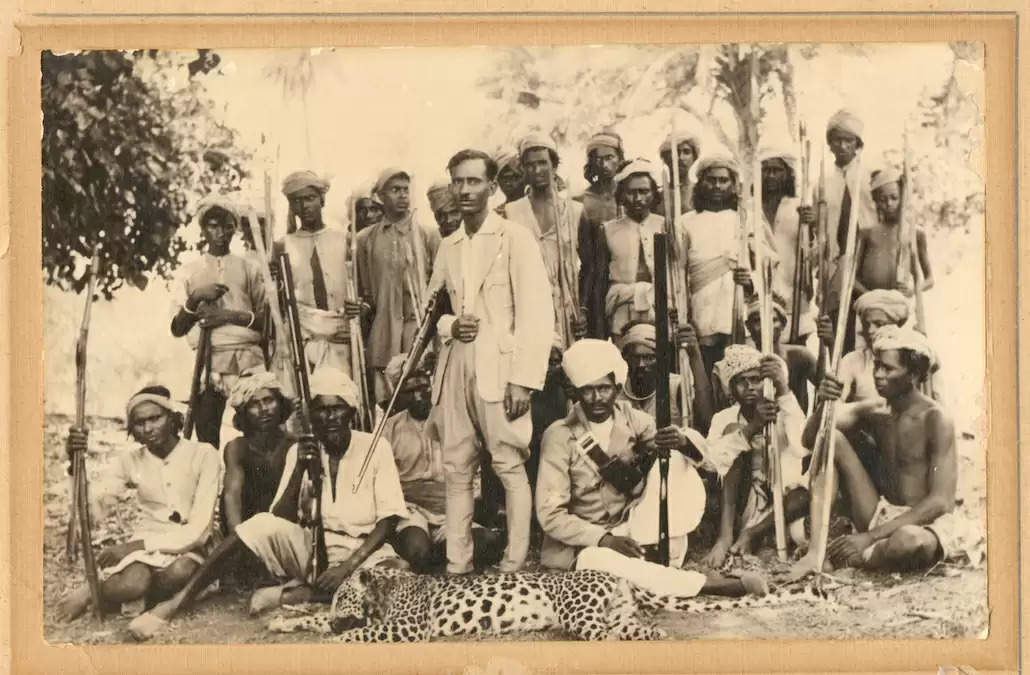
Born into aristocracy, Taffazul could have embraced a life of luxury and ease. Instead, he embraced a path fraught with challenges and transformation. Like his father, Taffazul was progressive and dedicated to reforming the deep-rooted social issues affecting his homeland. His influence extended from the palaces to the forest dwellings of the tribal communities scattered across the rugged Aravalli terrain. He was not just a benefactor but also a collaborator, advocating the tribal rights to his zamindar friends.
Taffazul and Khursheed - a Progressive Partnership
In the early decades of the 20th century, the Bohra community, like many others, was steeped in conservatism. During those years, the young Taffazul made the unconventional choice to grow long hair and be clean shaven. Despite facing the ire of community elders, his father supported his styled appearance.
Khursheed, to whom he was betrothed at her birth, tragically lost a leg at the age of seven due to a severe infection. As they reached marriageable age, Taffazul's mother and sisters voiced strong opposition to his union with Khursheed, citing her disability. Unwavering, Taffazul declared that he would either marry her or remain single. Following their marriage, Khursheed endured harsh criticism from her mother-in-law and sisters-in-law. Nonetheless, Taffazul and Khursheed formed a formidable partnership, catalysing social change and nurturing a family of activists, reformers, and social workers.
Weathering the Storm - Challenges during Partition
During the tumultuous period of independence, Taffazul was presented with an opportunity to own a significant share in a merchant navy and mining operation by a friend in the newly formed Pakistan. However, he steadfastly refused to leave his homeland and the brotherhood of his Rajput friends and Bhil tribals. Taffazul was determined to stay, even if it meant facing financial ruin.
In 1948, under the Mewar state constitution, a seat reserved for the Director of a limited company was set to be filled. T.H. Tehsin was unanimously nominated by both Mewar Praja Mandal, an ally of Nehru’s Congress due to their Gandhian thought, and the opposition Shetriya Parishad. He was urged to convert his business to a private limited company and provided the support to do that. However, a tragic incident involving a firing at a Praja Mandal rally led to the cancellation of the elections, preventing Tehsin from taking office as a legislator.
During the communal riots sparked at the time of partition, Bapu was the only one courageous enough to keep his shop open in an area beleaguered by violence, where other Bohra-owned cloth shops had been burned down. On one occasion, when his showroom was closed, rioters arrived intending to set it ablaze. Mrs. Gandhi, the landlady whose family resided on the first floor above the shop, confronted the mob by lying down in front of it. She challenged the rioters, declaring that they would have to burn her first. This act of bravery by Mrs. Gandhi stands as a poignant testament to the spirit of communal harmony in Mewar.
Venturing into new territories - Mining Era
Despite averting the rioters, Bapu faced further adversity. The newly established government, mistrusting a Muslim, revoked his arms license. Undeterred, Bapu ventured into a new realm in 1948, beginning his journey in mining and becoming a pioneer in the field. He leased out eight mines from the government for a period of 100 years. The mines were spread across the Aravalli ranges, some extending as much as 40 miles. These vast tracts of land, densely forested and teeming with wildlife—from crocodiles in the Banas River to leopards in the hills — presented formidable challenges.
His B-Model Ford car, often requiring passengers to disembark and walk through the rugged terrain, was the first to reach many remote villages. However, the journey was fraught with hazards. The poor tribals returning from the mines were routinely robbed by dacoits, who would strip them of their clothes if they found nothing else of value. Bapu promptly asserted his authority. Standing in front of one of the dacoits’ hiding caves, he fired multiple shots into the air, a bold act that established a tacit peace agreement and marked a significant turning point in ensuring safety for his workers.
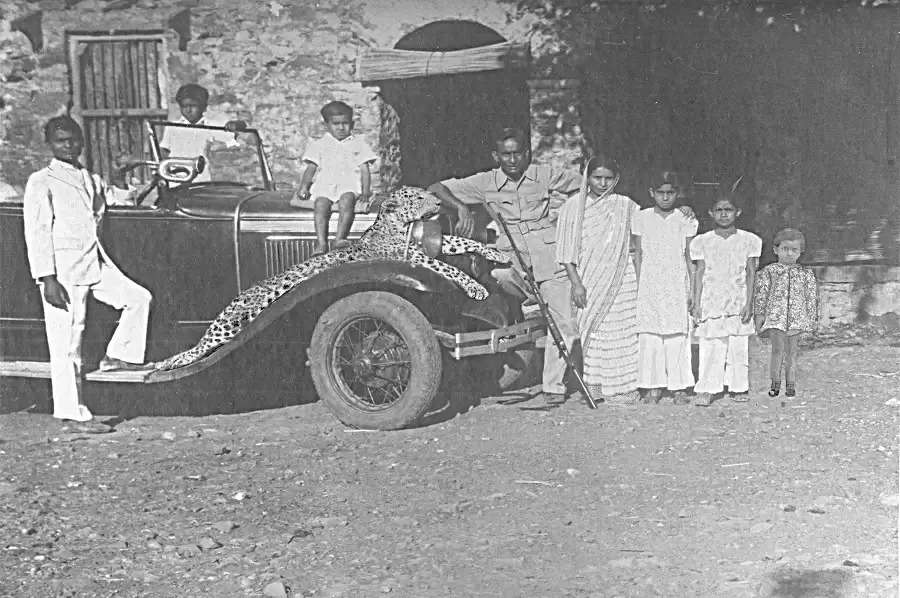
T. H. Tehsin was both a highly disciplined and respected big game hunter and one of the earliest wildlife conservationists in India. He received numerous requests from the Maharana and later the Government of India to deal with cattle lifters and man-eating animals in Mewar.
However, his pioneering efforts in mining came at a great personal cost. Within just the first nine months, Tehsin faced substantial financial losses, sucking his life's savings dry. Despite the rich mineral deposits in his mines, the lack of roads in these remote, forested areas severely hindered the transportation of mined materials to railheads, complicating his ventures and financial stability.
Empowering Women: Khursheed's Initiatives
Despite financial setbacks and with all their children still in school, Bapu and Khurshed continued their social endeavours. Their home became a hub for intellectuals, activists and reformers, gathering to debate and shape the contours of a modern state. In 1942, she had formed Bazm-e-Niswan, a women’s study group (with a library), to spread the message of Gandhi and increase awareness about the country’s socio-political situation. She was also one of the founders of the Residency Club formed by the British Residency. It consisted of a group of women volunteers working to help the victims of World War II. Khursheed was active in promoting women's education within the Bohra community. She collaborated with Mrs. Shanta Trivedi, who went on to establish the Rajasthan Mahila Parishad in Udaipur.
Khursheed Banu overcame strong community resistance to establish a school for women in Bohrawadi. This initiative significantly advanced female education in the area. Her efforts led to her appointment as the Vice President of the Rajasthan chapter of the All India Women's Conference (AIWC), under the presidency of Maharani Gayatri Devi, further cementing her impact on women's education and empowerment in the region.
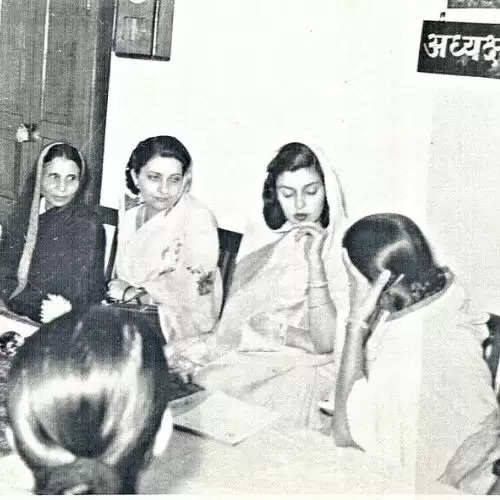
Shanta Trivedi, Habiba Banu Tehsin at the AIWC Meeting in Udaipur
Civil Leadership: Taffazul's Role in Local Governance
Bapu distinguished himself in local governance, winning several elections as an independent candidate to the Udaipur Municipal Corporation. He served as the head of the Finance Committee among other committees, and eventually became the Vice Mayor of Udaipur in 1951.
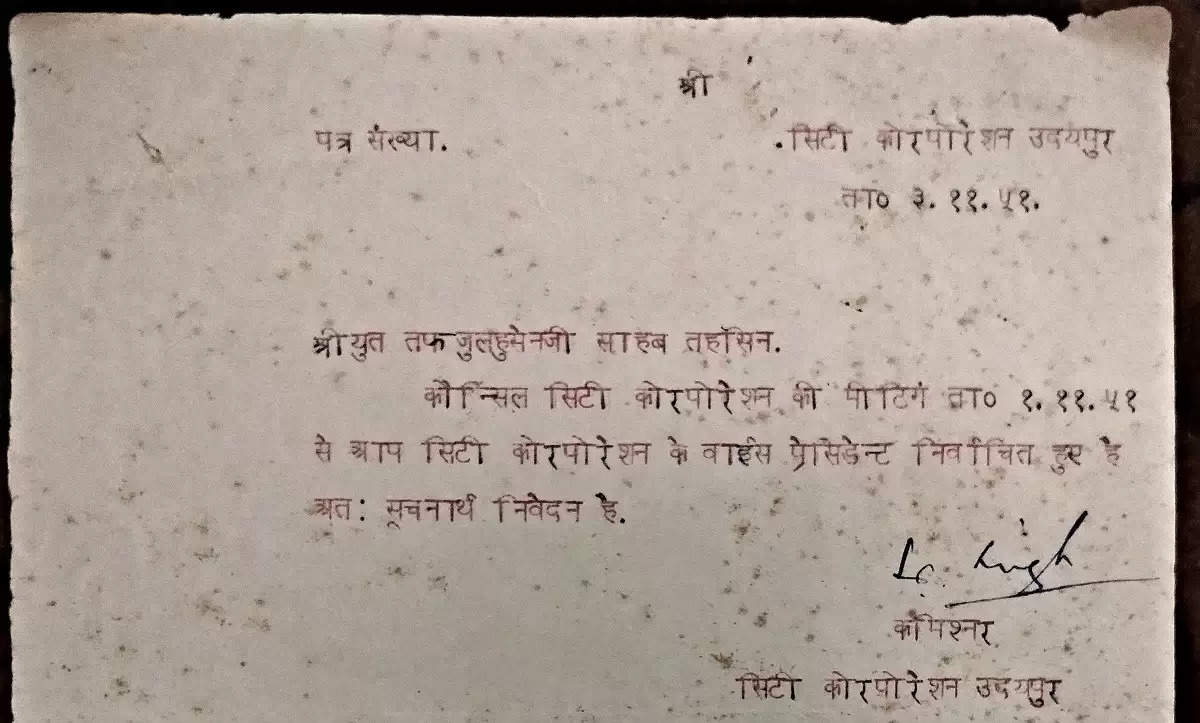
After the resignation of Mayor Dr. Bhakhtawar Lal in 1954, he assumed the role of Acting Mayor.
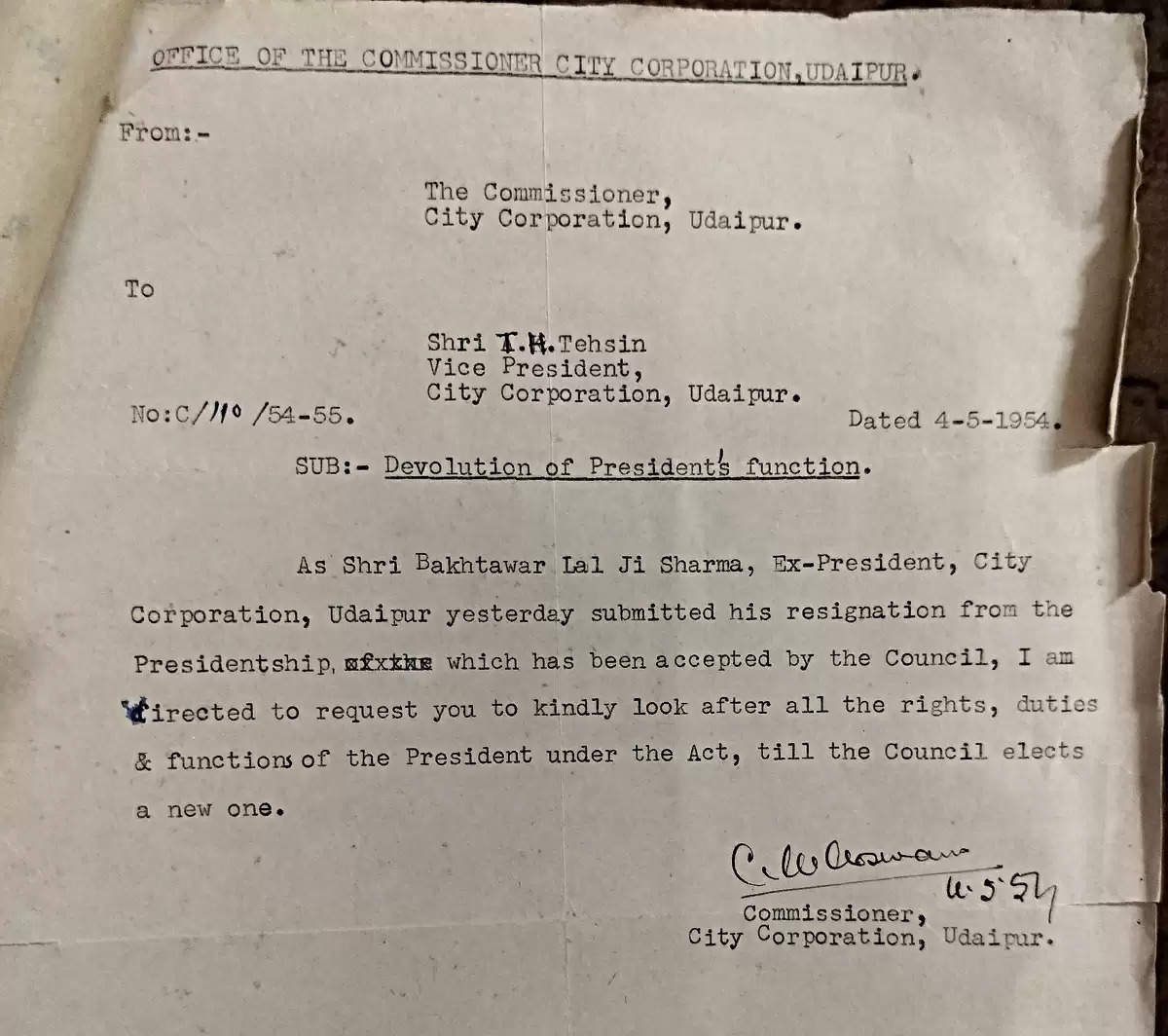
During his tenure, Bapu focused particularly on improving infrastructure, working diligently to enhance roads, drainage, and sanitation systems in the city. His contributions had a lasting impact on the urban development of Udaipur.
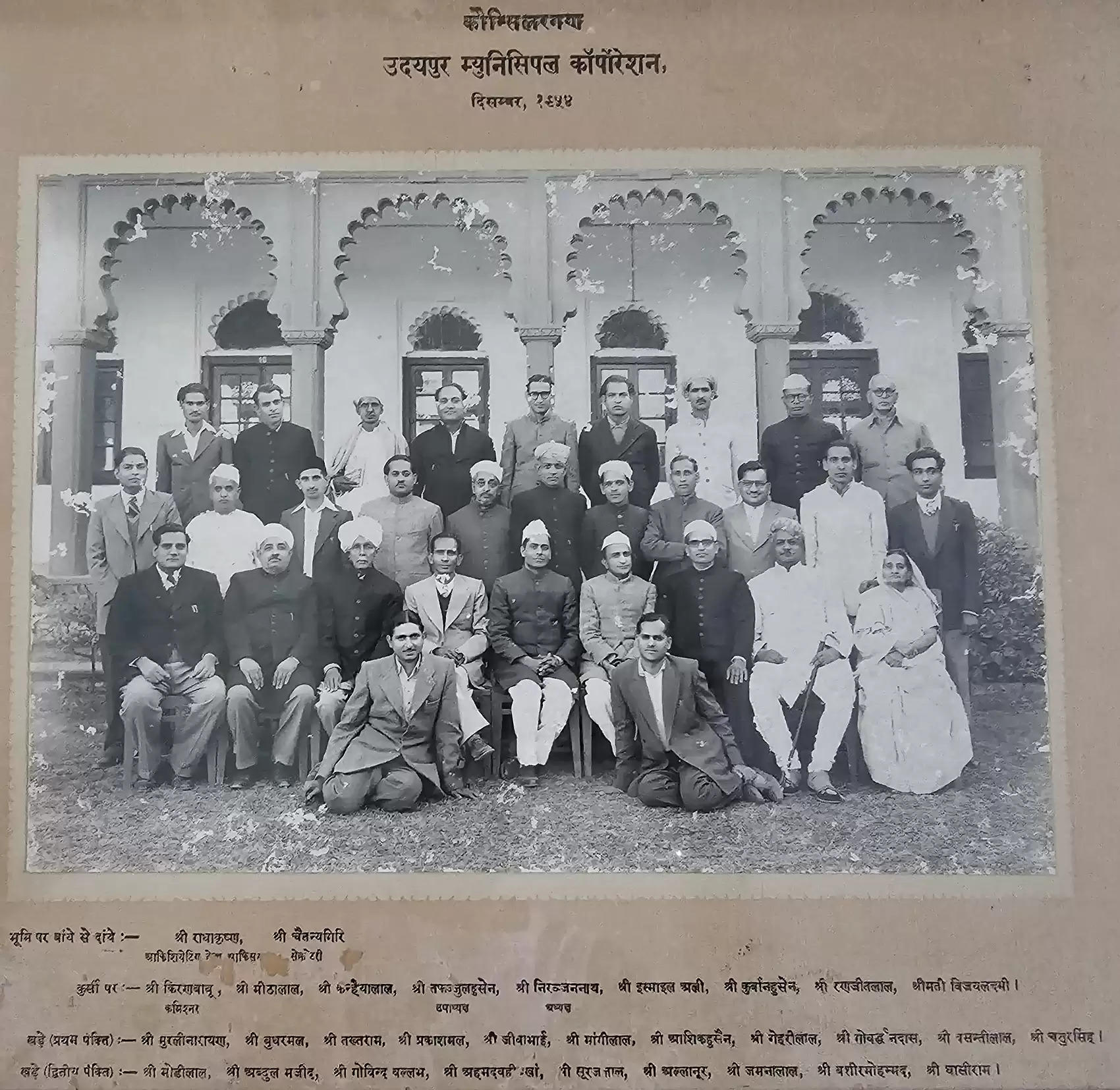
Family of Changemakers: Tehsin Legacy
Khursheed and Taffazul instilled values of fairness, neutrality, rationalism, and questioning before believing, in their children, emphasising the importance of voluntary contribution to the society and the world. Since the 1960s, they supported their children in inter-religious marriages, creating a multicultural and multi-faith family. Their eldest daughter, Habiba Banu, became a socialist, often imprisoned alongside the prominent socialist leader Dr. Ram Manohar Lohia. She later founded the All India Samajwadi Mahila Sabha, the women's wing of the Socialist Party, and served as its President. Razia Tehsin was a renowned author and social worker who served as an Honorary Judge in Juvenile Court. Riaz Tehsin was an educationist, folk arts veteran, and humanitarian, leading various institutions like the Vidya Bhawan Society and Bhartiya Lok Kala Mandal for decades in an honorary capacity. Raza Tehsin became a wildlife protection crusader and the pioneer of the wildlife conservation movement in Southern Rajasthan.
In the late 1960s, after Riaz returned from the Aligarh Muslim University as a geologist, the family reassessed the mining situation and subsequent losses. They decided to hand over all their mines to the government. Following this, Riaz, Raza, and Rafiq, the three brothers, founded one of Udaipur's first private limited companies, a plastic manufacturing and recycling unit, which supported the nature-loving family and their voluntary activities throughout their lives.
The Twilight Years: Reflecting on a Life of Service
T. H. Tehsin left the world on the World Environment Day, 1991, disheartened at the state of the forests, his lifelong allies. From him declining education in London to the thorny wilderness where he drove his Overland-Whippet car to refusing vast estates offered to him, from chasing man-eaters in thick forests to building roads in Udaipur to taking on dacoits single-handedly to protect the tribals highlight the character of a man devoted to his homeland, fuelled by an unyielding commitment to justice, equality, forests and nature.
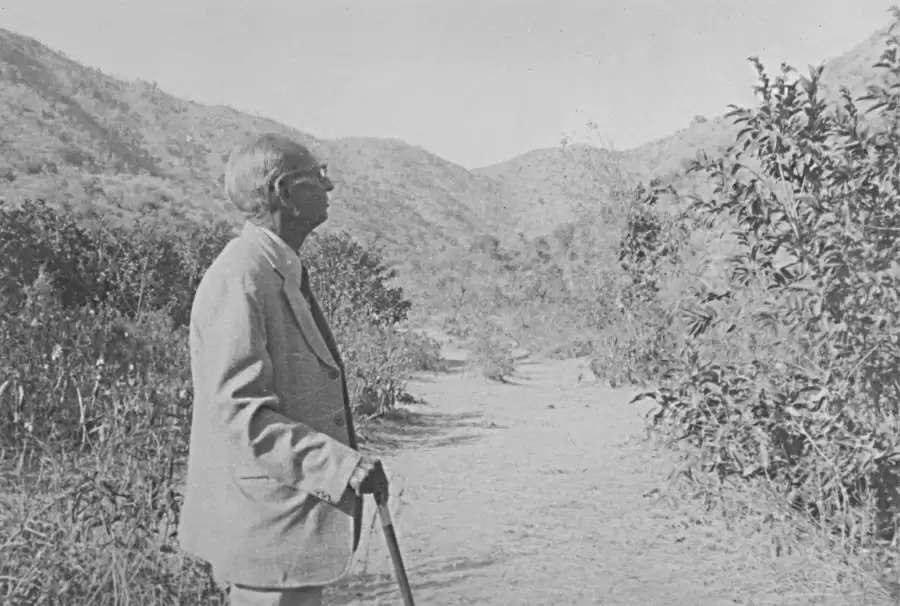
In his final years, Bapu was often seen walking alone through their wild family lane in Panchwati at night, his heart heavy with sorrow. The once majestic Aravalli hills, now standing 'naked' due to the wounds inflicted by humans, mirrored his sense of loss. Bapu's story is a compelling narrative of a man who utilised his resources and influence to foster socio-economic development, advocate for social reforms, and protect the natural environment, making him a true pioneer of his time.
(Many parts of this article have been taken from Riaz Tehsin’s unfinished autobiography).
A Few Other Photos to reflect on the legacy of Mewar's Own Bapu...
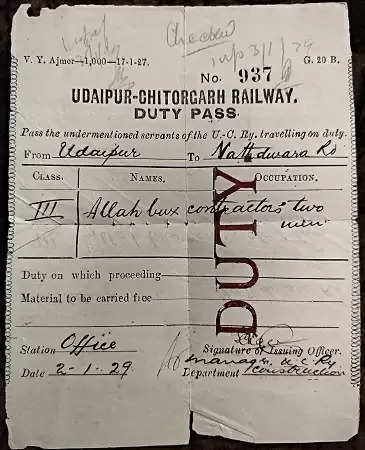
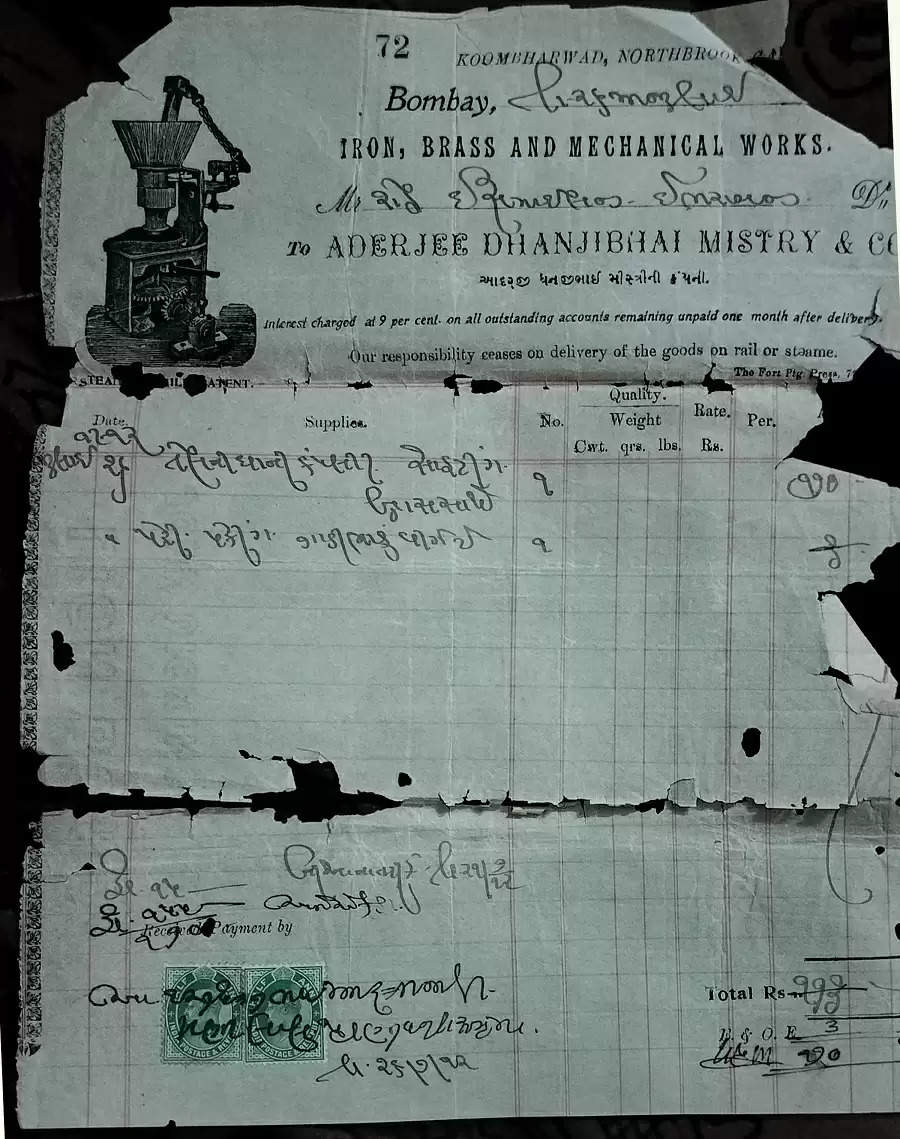
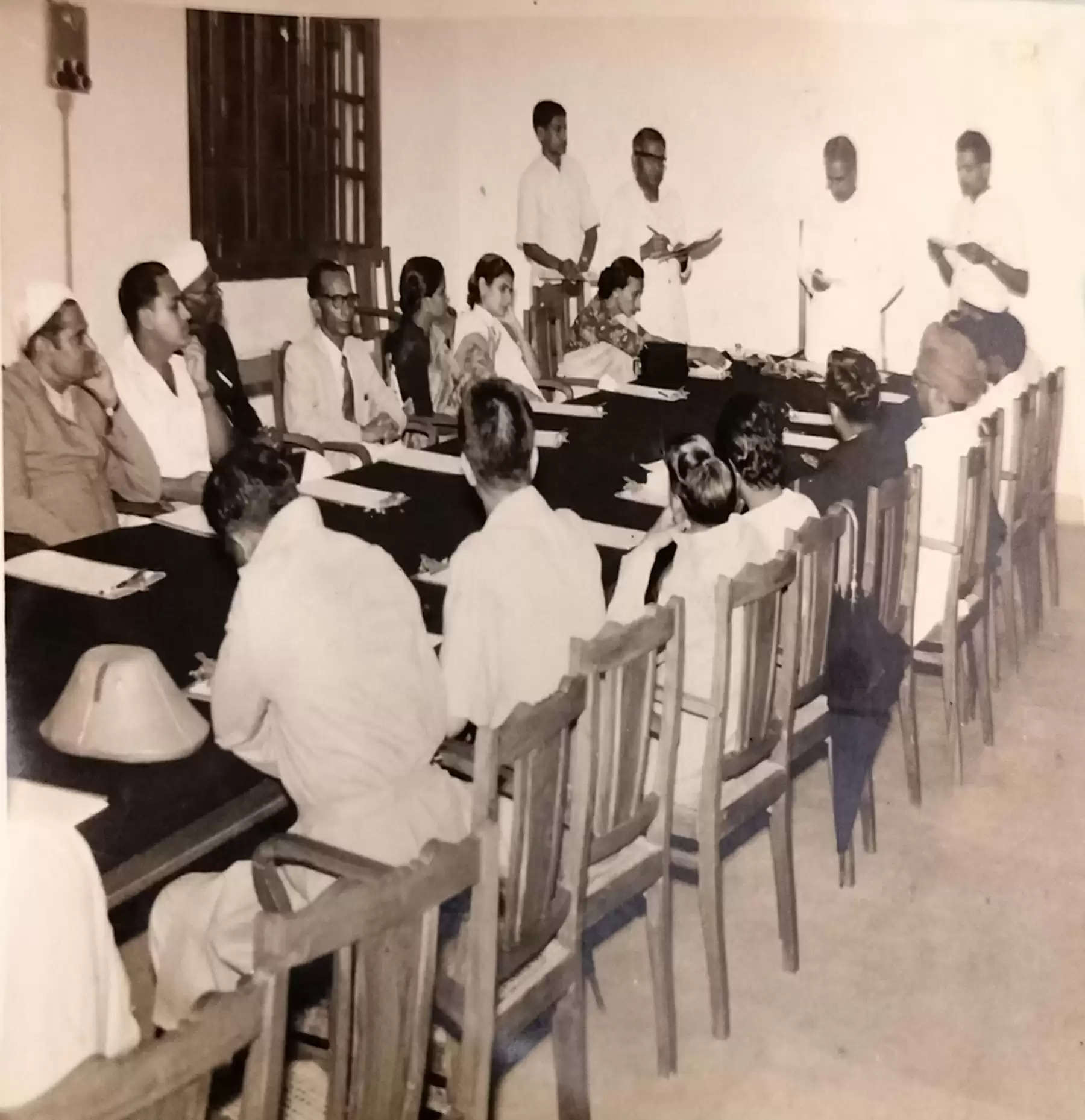
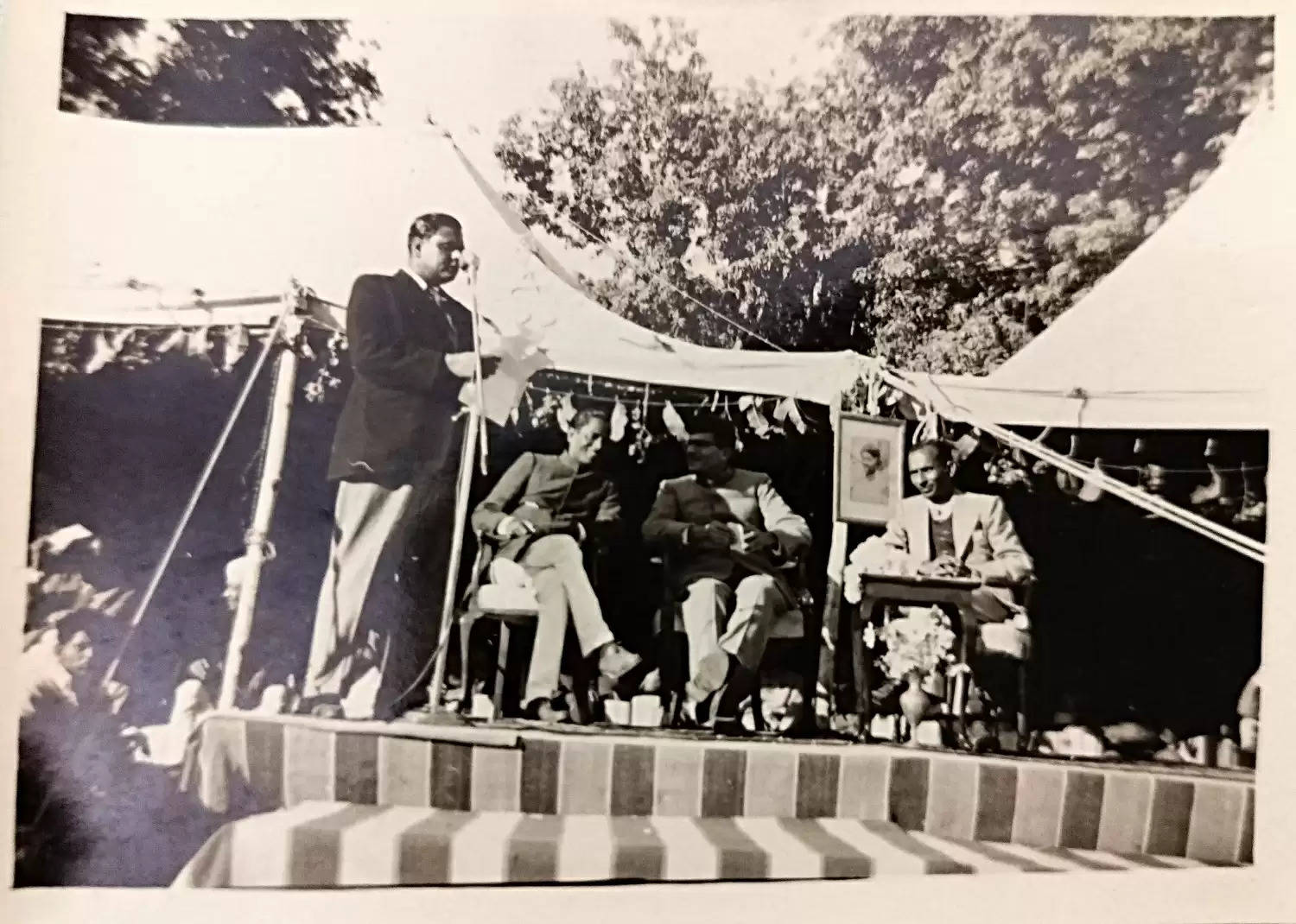
To join us on Facebook Click Here and Subscribe to UdaipurTimes Broadcast channels on GoogleNews | Telegram | Signal



